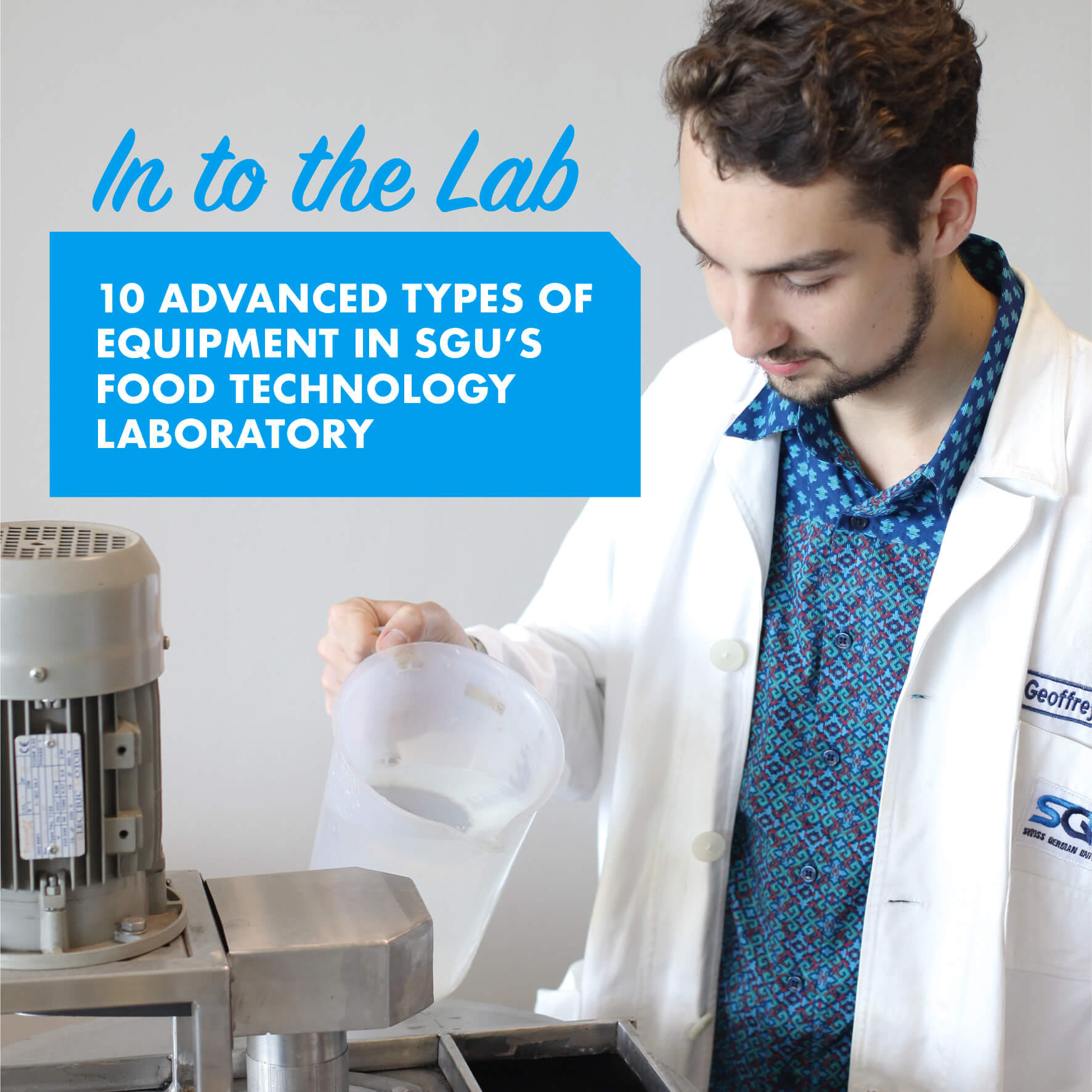
In to The Lab: 10 Advanced Types of Equipment in SGU’s Food Technology Laboratory
Have you ever heard of air protein or lab-grown meat? These two items are examples of the latest food technology innovations. Food Tech is the emerging sector exploring how technology can be leveraged to create efficiency and sustainability in designing, producing, choosing, delivering, and enjoying food.
Food technology is a science that has existed for a long time and continues to develop every year. Scientists continue to innovate so that the food served at our dining table can have added value. Food technology also plays an important role in overcoming the food crisis that occurs due to climate change and population density.
SGU has a Food Technology study program for those of you who want to have the opportunity to join this fast-growing food industry. Not only a theory, but you can also practice food technology in a laboratory owned by SGU. The laboratory, which is open 24 hours, can be used by students whenever they need it. You can freely explore to produce innovations in food technology.
The SGU food technology laboratory is also equipped with at least 25 of the latest state-of-the-art laboratory equipment which is not often found in other universities. Even students from other universities come to SGU to borrow the equipment from the laboratory.
Some of the sophisticated equipment available in the SGU Food Technology laboratory include:
1. SPRAY DRYER
Equipment to convert food from liquid to powder. Usually used in the process of making food or instant drinks in the form of powder, such as powdered milk, instant coffee powder, instant noodle seasoning. At SGU, this technology is also used for the development of products based on natural extracts.
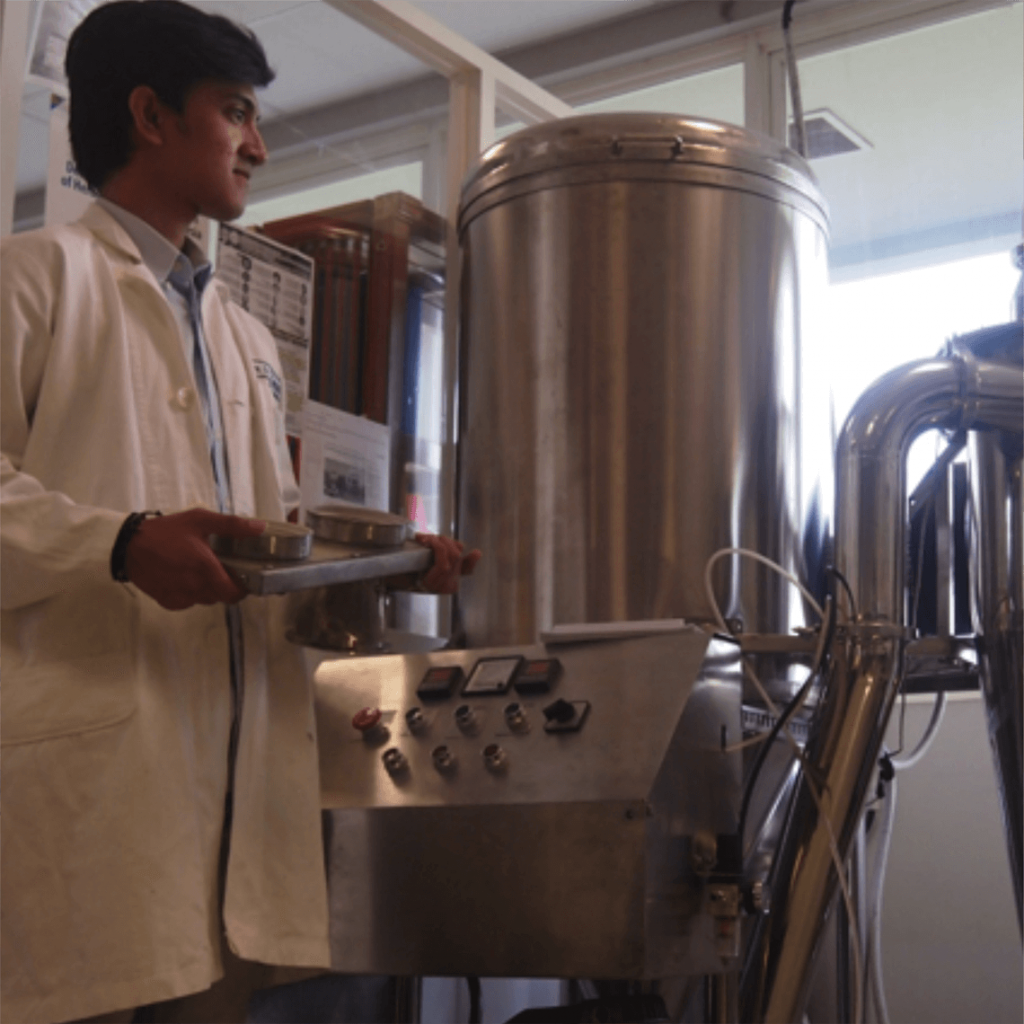
2. MICROPLATE READER, WASHER, THERMOSHAKER
Equipment for performing physical and chemical analysis based on the absorption of light waves. At SGU it is used for the identification of chemical content and material characterization in the development of food coloring from natural ingredients.
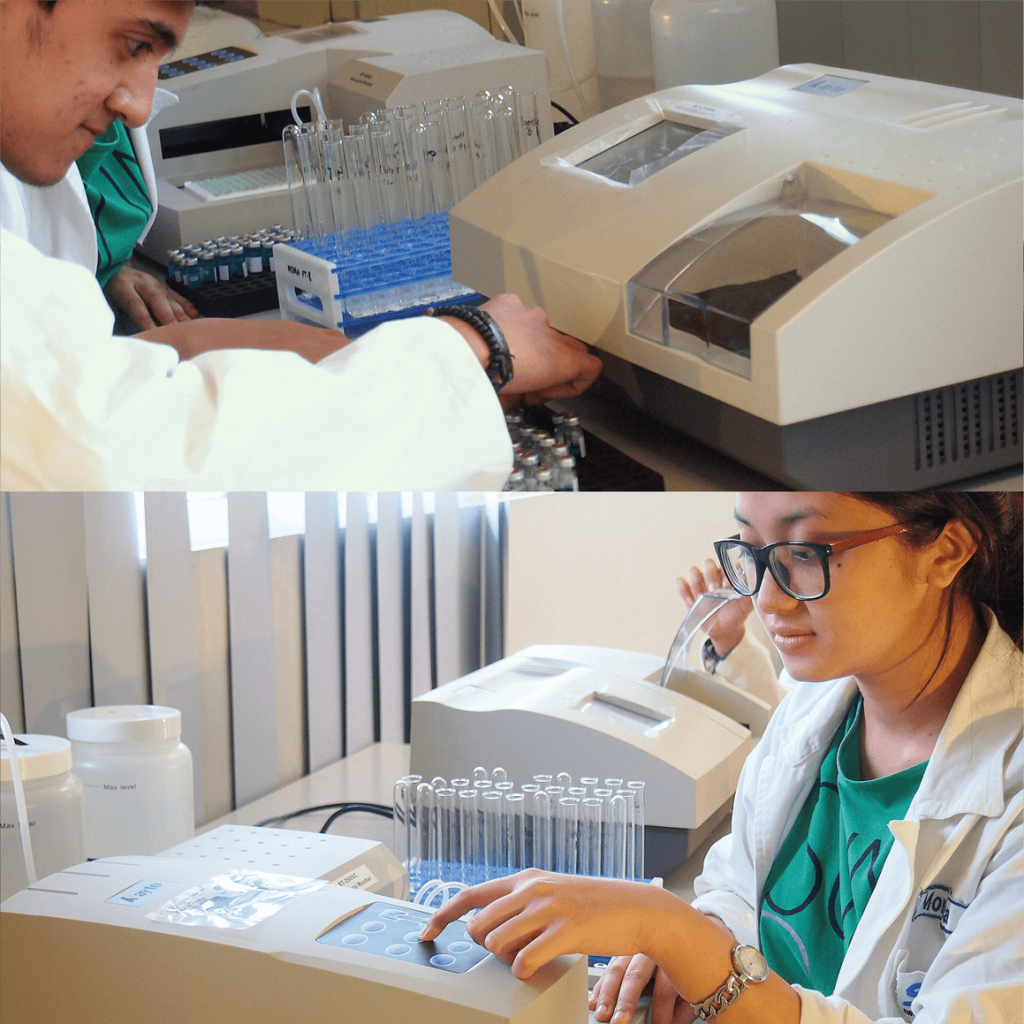
3. FREEZE DRYER
Equipment for drying food ingredients or laboratory samples at very low temperatures reaching minus 50 degrees Celsius, so that the nutritional content of food ingredients is not damaged during the drying process. Usually also used to dry fruits, vegetables, eggs, and other food ingredients. At SGU, this technology is also used to develop functional food products.
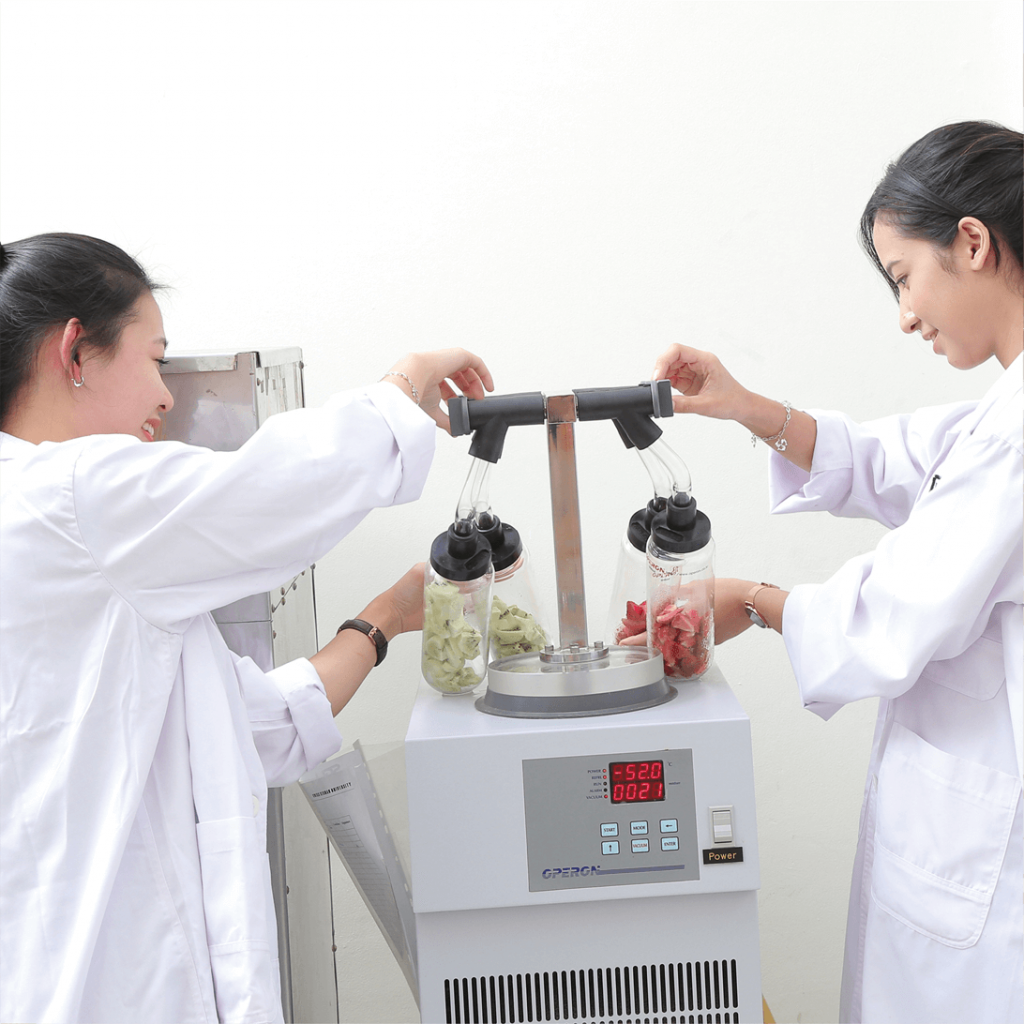
4. PULPER – JUICER MACHINE and PASTEURIZER MACHINE
Industrial-scale equipment for crushing food items such as fruit and vegetables and automatically separating liquid, light, heavy and coarse dregs. It is connected to a mixing and heating system that can heat the ingredients to the right temperature and time automatically to reduce the number of microbes present in the product, to increase the shelf life of the product. At SGU this technology is commonly used for the development of ready-to-drink (RTD) food products.
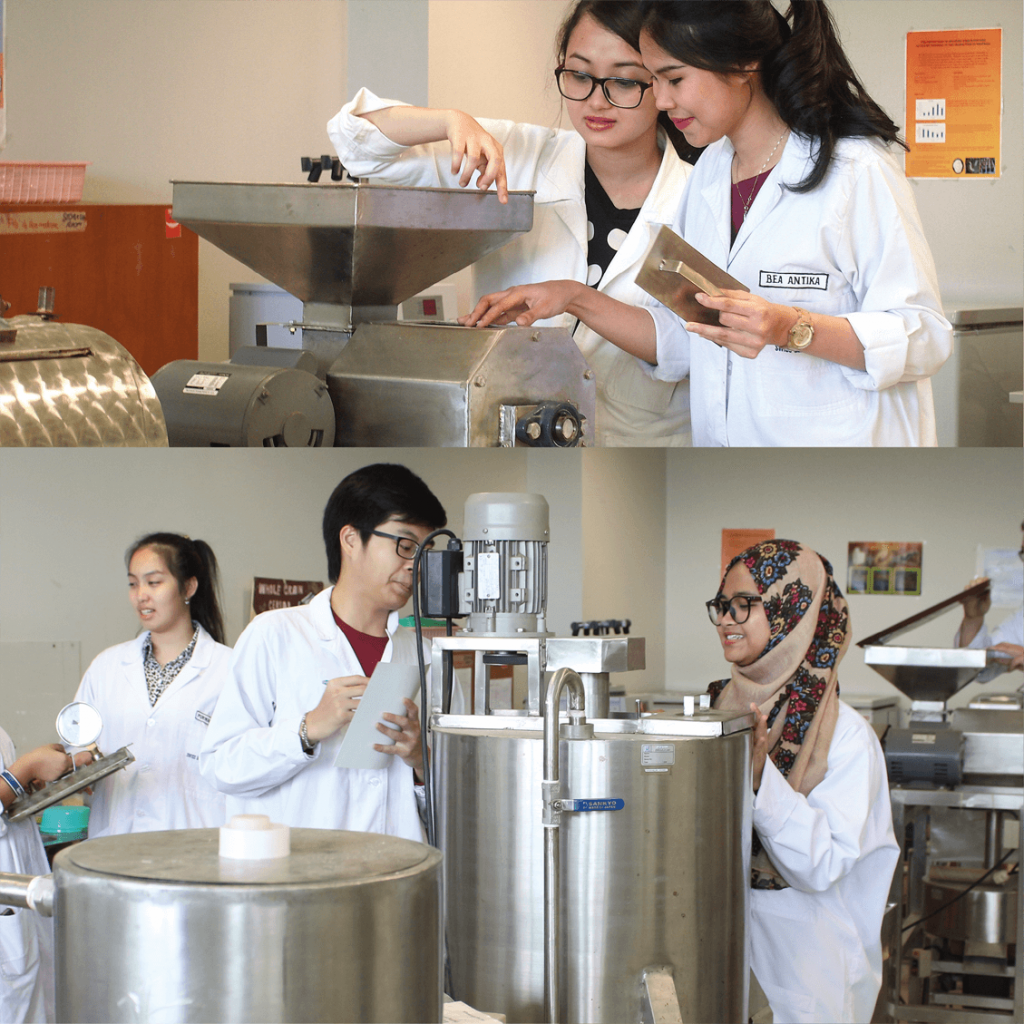
5. COLD EXPELLER PRESS
Equipment to physically separate the oil contained in food, without using solvents and without using heat, so as not to damage the chemical content of the oil being processed. Usually used to produce virgin coconut oil (VCO). At SGU this technology is used for the development of functional food products with high omega content, where the omega added to food products is produced from candlenut oil which is processed using this technology.
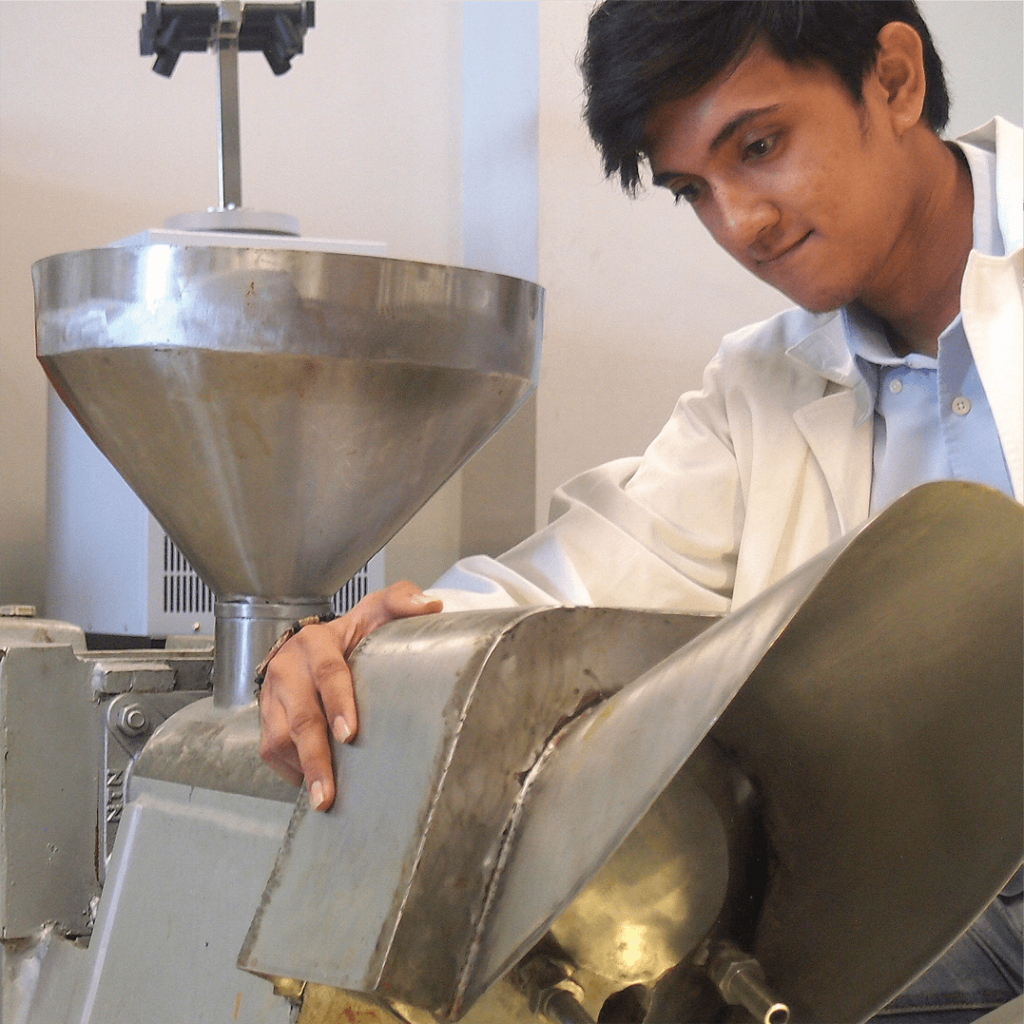
6. HIGH-PERFORMANCE LIQUID CHROMATOGRAPHY
Equipment for testing the chemical content in food raw materials, extracts from natural ingredients, and food products. At SGU this technology is used to determine the active ingredient content of functional foods that are being developed.
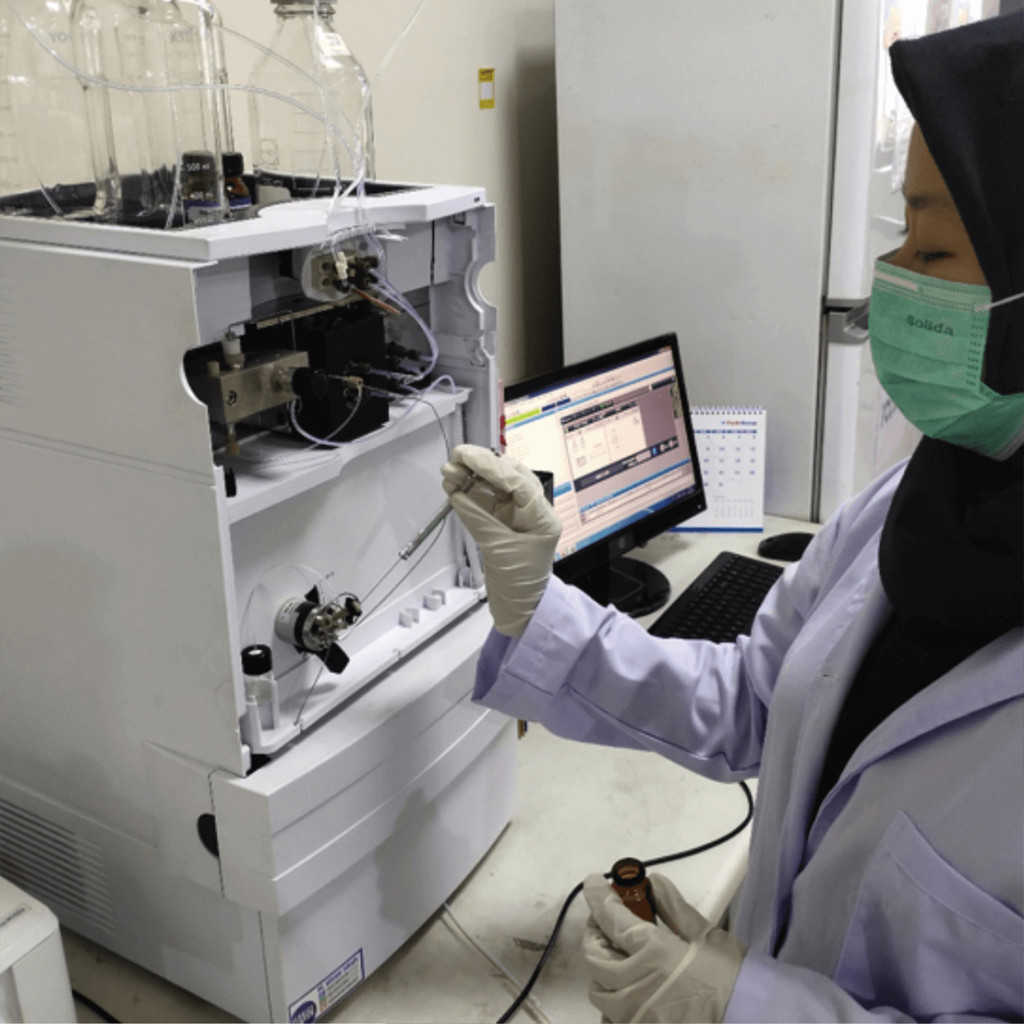
7. BROOKFIELD VISCOSITY METER
Equipment for the analysis and characterization of food texture, especially product viscosity. SGU is commonly used for the development of liquid food products such as ready-to-drink (RTD) drinks, yogurt, cheese, and syrup.
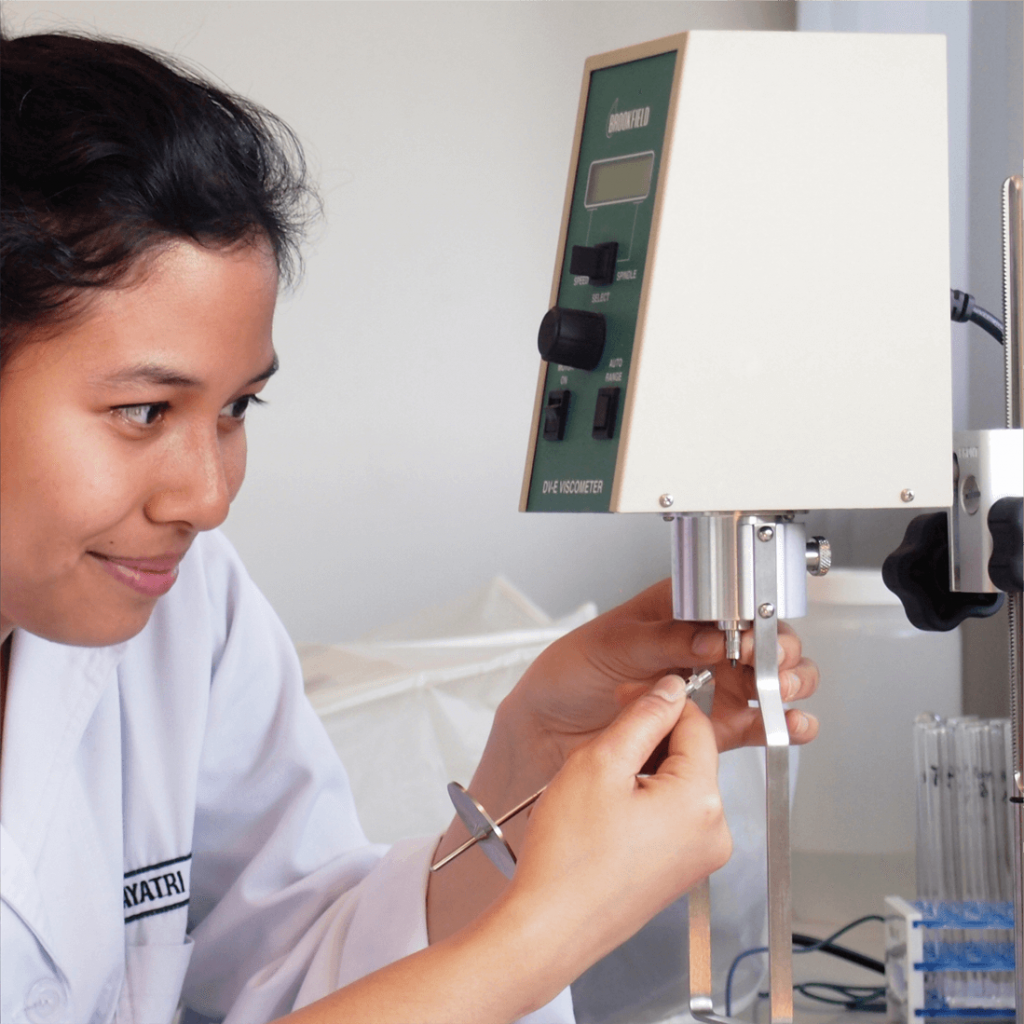
8. VACUUM ROTARY EVAPORATOR
The equipment used as part of the natural material extraction process, with the function of separating the extract from the solvent used, but by using low-temperature heating, so that the active ingredients in the extract do not suffer damage. At SGU this technology is used in the process of making extracts of natural ingredients which are part of the development of functional food products.
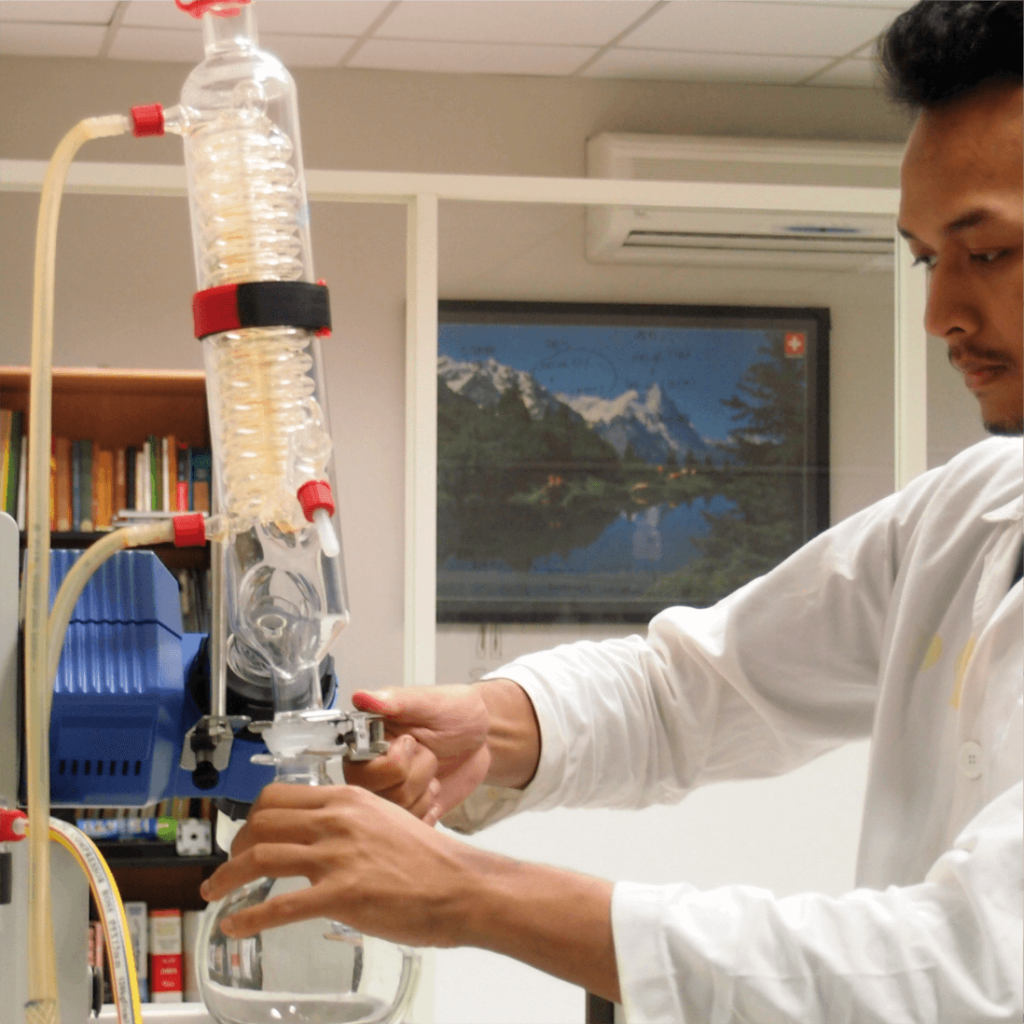
9. BIOSAFETY CABINET
This equipment is a closed cabinet equipped with technology to ensure that what’s inside and outside the cabinet doesn’t interfere with and damage each other. Usually used for handling bacteria and viruses. At SGU this technology is used for microbiological testing during the development of food products, for example when testing the shelf life of the product, or testing the antimicrobial activity of foodstuffs.
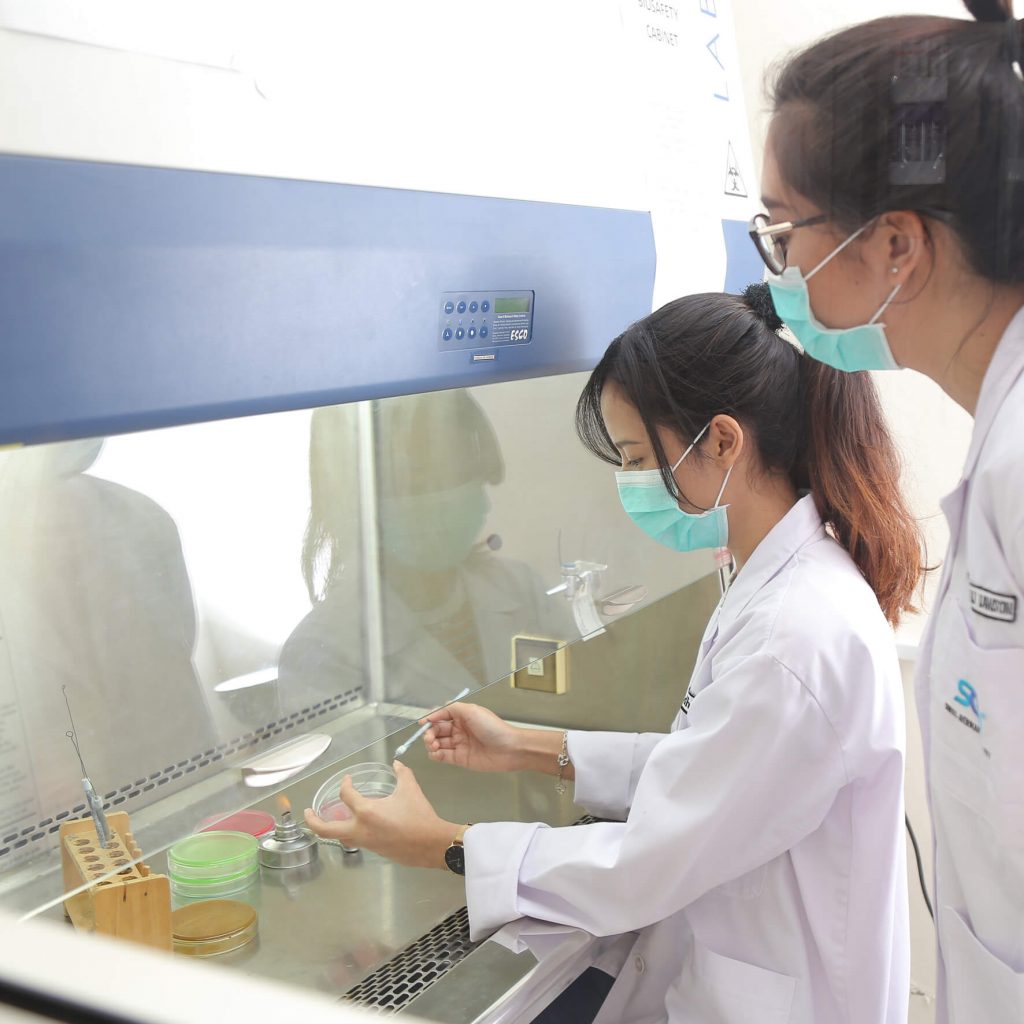
10. POLYMERASE CHAIN REACTION (PCR), GEL DOCUMENTATION SYSTEM
Equipment for conducting analysis based on genetics. Usually, it is also used for halal testing of a food product, by identifying the genetic presence of haram substances in the food product. This technology is also commonly used to identify microbial contamination in food products.
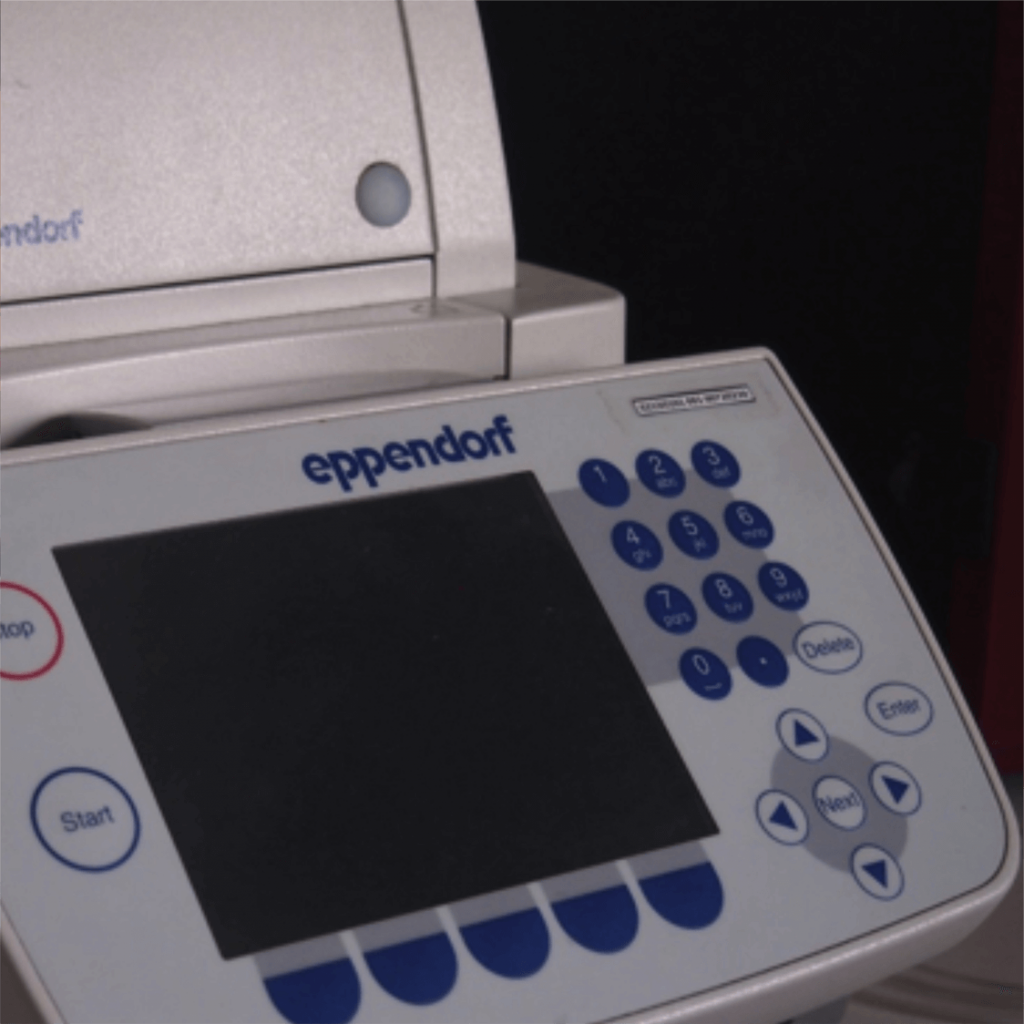
About SGU
SWISS GERMAN UNIVERSITY (SGU) is an international university in Indonesia, was established in 2000 as a joint effort between Indonesia, Germany, Switzerland, and Austria. We are the pioneer in offering international curricula in Indonesia. Qualified students can graduate with a Double Degree from Indonesia and Germany, which SGU provides in cooperation with partner universities; surely a valuable tool for your future careers. Ever since its establishment, SGU has been dedicated to delivering quality education in line with international standards and aims to develop skilled professionals who meet the demands of the industry. In order to achieve its objectives, SGU offers quality-oriented learning through 12 Bachelor’s Degree Programs and 4 Master’s Degree Programs ranging from Engineering, Information Technology, and Business to Life Sciences and Social Sciences. Furthermore, with small class sizes, and with English as the medium of instruction, you can look forward to pursuing your tertiary education and degree with full confidence.
Back

